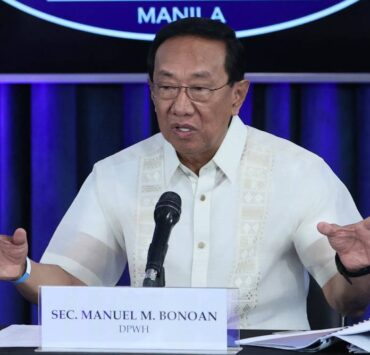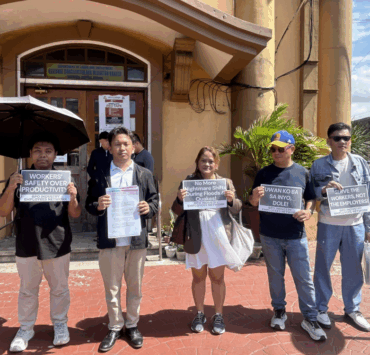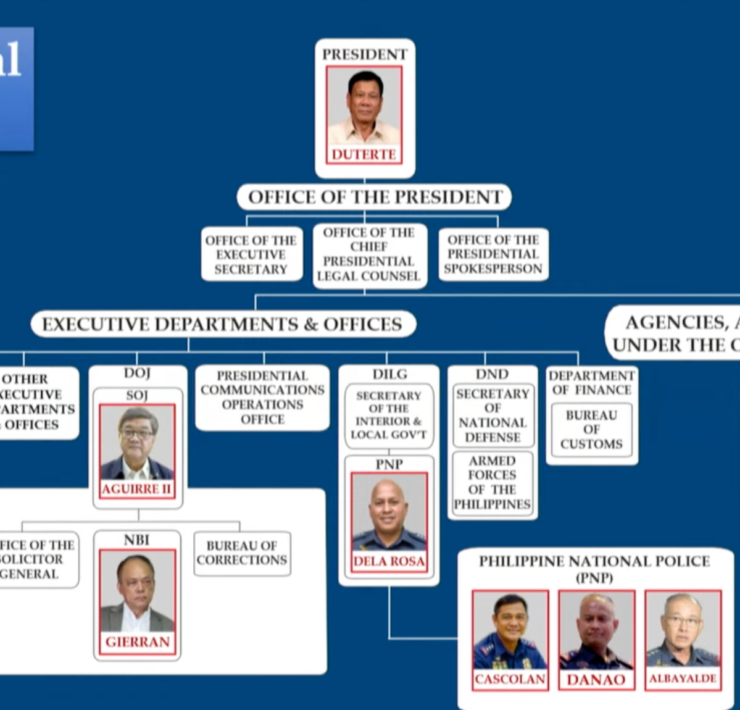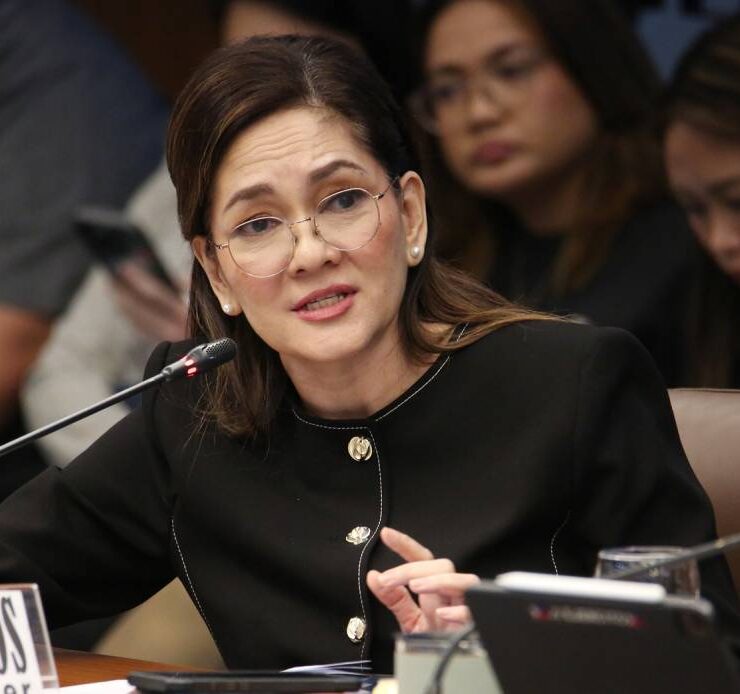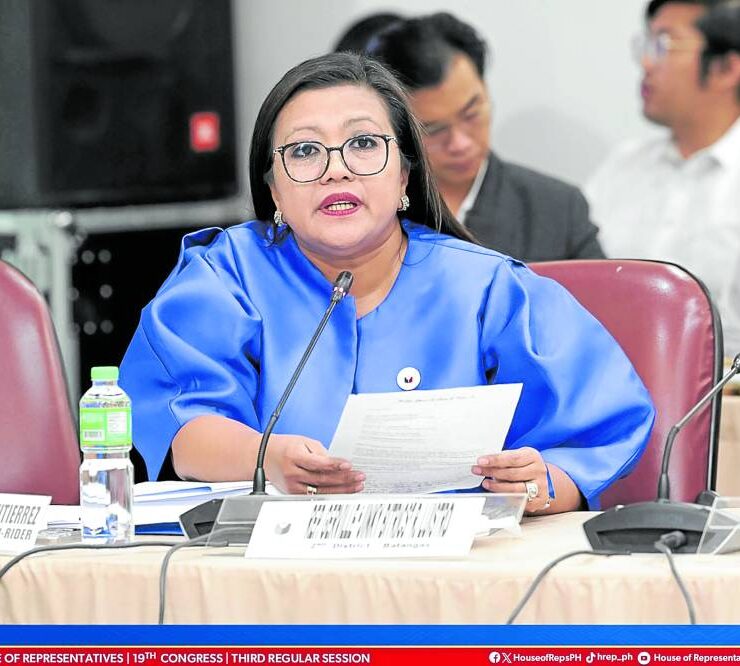Ping: Senate can’t keep Bato indefinitely if ICC wants him
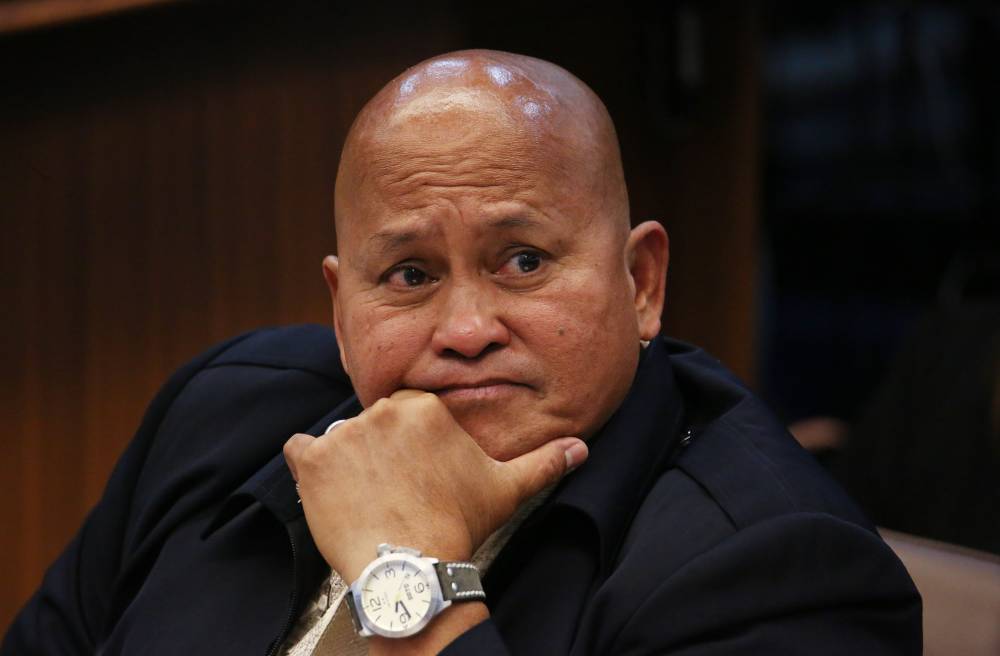
Sen. Ronald “Bato” dela Rosa cannot indefinitely use the Senate as a sanctuary if the International Criminal Court (ICC) issues an order for his arrest because such protection is “limited” under the Constitution, according to Senate President Pro Tempore Panfilo “Ping” Lacson.
“The Constitution is very clear on the matter. First, if the penalty is less than six years, there is immunity from arrest when Congress is in session. That’s the limitation,” Lacson told reporters on Tuesday.
“But we in the majority supports the pronouncement of the Senate President (Sen. Vicente Sotto III) that as long as [Dela Rosa] is in the premises, at least law enforcement agencies should exercise courtesy by refraining from serving an arrest warrant within Senate premises,” he said.
“Well, if it comes to that, we’ll have to tackle it and probably it’s still his call. But he can’t stay in the Senate premises forever because something has to give way and the Constitution, being the fundamental law of the land, will prevail,” he said.
To date, the government has not yet received official communication from either the Department of Foreign Affairs (DFA) or the Philippine Center on Transnational Crime regarding the receipt of the warrant.
This was despite a statement made by Ombudsman Jesus Crispin Remulla the weekend that a ICC order for Dela Rosa’s arrest had already been issued.
Dela Rosa played a key role as chief of the Philippine National Police during the implementation of the ruthless drug war under former President Rodrigo Duterte’s watch that left at least 6,000 Filipinos dead.
Lacson, also a former PNP chief, said he tried to contact Dela Rosa several days ago to offer moral support but his call was not answered.
“The following morning, I noticed I had a missed call from him. I hope we can talk just to give him some advice, not to hide but how to go about facing criminal charges,” said Lacson.
Dela Rosa was absent during the resumption of the plenary session at the Senate on Tuesday.
Asked what would he advise Dela Rosa, Lacson said “a lot.”
“I think he knows it… since he came from the PNP. But my own personal experience or experiences, I want to share with him, not for anything, but within the bounds of the law and rules of the [ICC],” he said.
Will he advise Dela Rosa to hide?
“[Dela Rosa] hasn’t decided yet if he’s going to hide. If he decides to hide, I’ll teach him how to hide. Joke,” he said in jest. In January 2010, Lacson went into shortly before a warrant of arrest was issued by a court for his alleged role in the murder of publicist Salvador “Bubby” Dacer and driver Emmanuel Corbito.
Lacson explained that the situation would differ if Dela Rosa decides to hide because his case would fall under the international court.
“In my case, since it’s a local court, the Tuliao vs Miranda (G.R. 158763) ruling applies. It says that even if the respondent is not under the court’s jurisdiction, pleadings can still be filed,” he added.
“In his case, it won’t apply, it won’t proceed. So his warrant of arrest will stay, probably it can be archived, that’s already there. In my case, while I was on the lam, I was able to file pleadings which led to the dismissal of the case that I was facing at the time,” he explained.
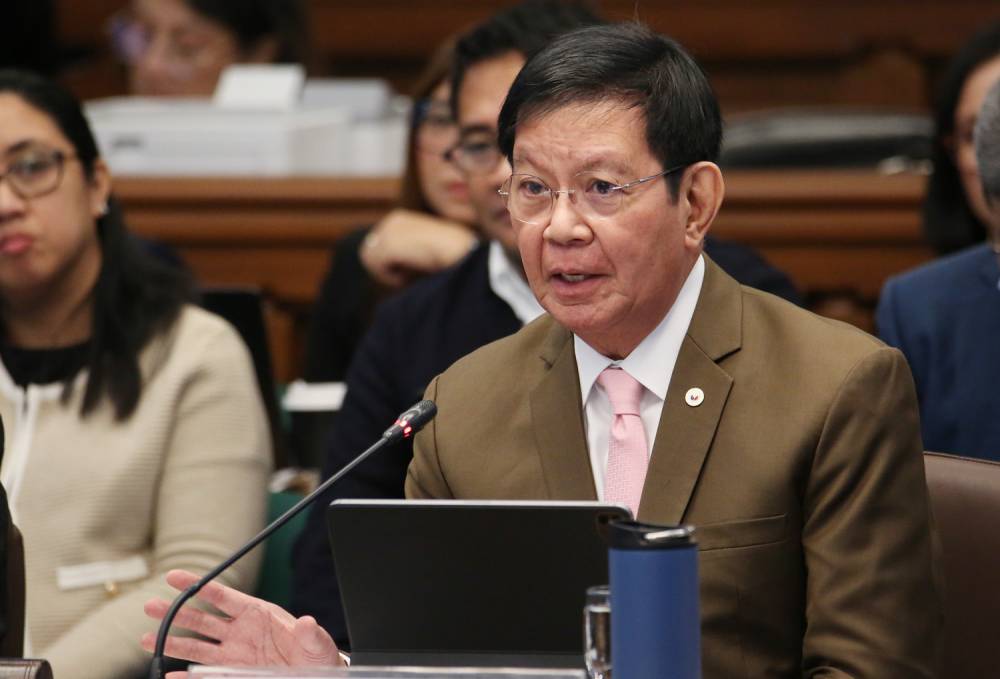
Compliance
The Department of Justice (DOJ) said the Philippine government would have to comply with the ICC’s possible order to arrest and hand over Dela Rosa to the court in The Hague once a warrant is issued regardless of the process.
Prosecutor General Richard Fadullon, in a briefing on Tuesday, said the question lies in when it would be carried out, “because depending on the route that you will take … if it’s extradition, it takes quite some time because you still have to go through a trial, whereas a surrender would be immediate.”
Chief State Counsel Dennis Chan said the DOJ had yet to receive or see a copy of the supposed arrest warrant against the senator.
Chan, citing Republic Act No. 9851 or the Philippine Act on Crimes Against International Humanitarian Law, Genocide, and Other Crimes Against Humanity, said the state has two options available in implementing an ICC arrest warrant: extradition and surrender.
“At this point … the state is seriously studying all options available to it. We are not closing the door on extradition or surrender per se. And until now, we have not seen nor received a copy of this ICC warrant of arrest,” Chan said.
Remulla, in a briefing also on Tuesday, revealed that he has a copy of what appears to be ICC’s warrant of arrest against Dela Rosa, but clarified that the image of the document that he keeps in his phone is not an official copy.
He noted, however, that the warrant has yet to pass through proper channels before it can be officially implemented.
“If you ask me whether there is a warrant, yes, I have it on my phone. I have a copy, but it is not yet an official copy; I just know that it exists,” said Remulla, a former DOJ secretary.
Although the Philippines has withdrawn from the Rome Statute, the treaty that established the ICC, the Chan cited the “principle of reciprocity that governs between relations among nations and in fact reciprocity and comity.”
“While legally, we cannot be compelled [to cooperate with the ICC], we are also weighing the diplomatic implications of that,” he said.
But unlike the immediate arrest and handover of Duterte to the ICC where he is facing crimes against humanity of murder, the government is taking a more cautious approach this time, with Fadullon citing the pending Supreme Court petitions and the Senate inquiry into Duterte’s arrest.
“We want to be more careful because the circumstances then and the circumstances now are quite different. At that time, there was no petition yet which was raised or filed before the Supreme Court,” the chief state prosecutor said.
New rules from ICC
Meanwhile, the ICC has made all applications for arrest warrant or summons to be kept “under seal,” or to remain confidential from the public, as it aims to standardize how the tribunal should implement the proceedings.
The amendment to the Regulations of the Court, which takes effect immediately on Nov. 10, outlines the process of applying for arrest warrant or summons to appear for persons under investigation by the Office of the Prosecutor (OTP).
Under the new “Regulation 23 ter,” all applications for arrest warrant or summons from the OTP should be “marked as ‘under sea’ or ‘secret,’ unless otherwise authorized by the chamber.”
But the chambers, including the Pre-Trial Chamber I that is handling Duterte’s case, may exercise discretion when to lift the confidential nature of the arrest warrant application. —REPORTS FROM TINA G. SANTOS, CHARIE ABARCA, JANE BAUTISTA, TETCH TORRES-TUPAS, FAITH ARGOSINO AND KATHLEEN DE VILLA














